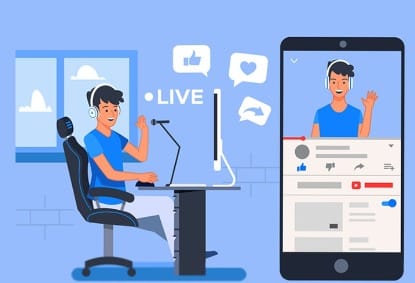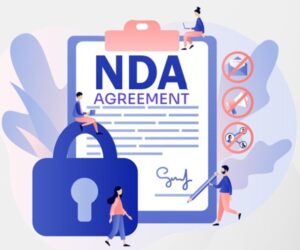Imagine as an Youtuber, you’ve just hit upload on your latest YouTube video. It’s a masterpiece – hours of scripting, filming, and editing have gone into it. But as you sit back and watch the views roll in, a nagging thought hits you: “What if someone steals my content?”
If you’re a YouTuber, whether you’re just starting out or already have a sizeable following, understanding your intellectual property (IP) rights isn’t just important – it’s essential. But don’t worry, this article got you covered.
Copyrights
Copyright protects original works of authorship, including videos, music, scripts, and other audiovisual content. It grants the creator exclusive rights to use, distribute, and modify their work. It automatically safeguards your original work without the need for registration. However, it is always advisable to get your work protected under copyright as it will serve as strong evidence of your ownership.
Key points about copyright in India:
- Automatic Protection: Your videos, scripts, music, and channel art are protected as soon as you create them.
- Duration: As per Indian Copyright Act, 1957, Copyright protection lasts for the creator’s lifetime plus 60 years after their death.
- Eligibility: To be regarded as eligible for copyright protection your work must fulfil the criteria of originality and fixation. Where originality requires your work to be new and not copied from anywhere, whereas fixation means that the work must be fixed on a tangible medium.
- Fair Use Doctrine: Indian copyright law recognizes fair use, which allows limited use of copyrighted material without permission for purposes such as criticism, comment, news reporting, teaching, scholarship, or research. However, this is a grey area and should be approached cautiously.
- Attribution: Give credit to any third-party content used in your videos.
The copyright registration process in India involves:
- Submitting an application to the Copyright Office
- Paying a fee (The official fee depends on the nature of the work you’re seeking copyright protection for)
- Providing copies of your work and sometimes an affidavit to sworn on the ownership on the work.
It’s advisable to register copyright for your most valuable content or elements used across multiple videos.
Trademarks
In Indian law, a trademark is a unique sign, design, or expression that identifies products or services of a particular source from those of others. For YouTubers, this can include:
- Channel names
- Logos
- Catchphrases
- Distinctive sounds or jingles
If you have a unique channel name, logo, or catchphrase, registering it as a trademark can prevent others from using similar marks that could confuse your audience.
Trademarks offer several benefits:
- Exclusive Rights: You can prevent others from using similar names or logos in the same field.
- Brand Protection: It safeguards your identity and reputation.
- Monetization: Trademarks can be licensed or merchandised.
- Legal Recourse: Registered trademarks provide stronger grounds for legal action against infringement.
Steps to Protect Your Trademark:
- Search and Clearance: Conduct a trademark search to ensure your mark is unique.
- Registration: Apply for trademark registration with the Indian Trademark Office.
- Usage: Consistently use the ™ symbol with your unregistered trademark and the ® symbol once registered.
Patents
Patents protect inventions and grant the patent holder exclusive rights to use and exploit the invention for a specified period.While patents are less common for YouTubers, if you create a unique technology or software for video production, a patent might be applicable.
Eligibility for Patents
- Novelty: The invention must be new. It should not have been disclosed to the public in any form prior to the date of the patent application.
- Inventive Step: The invention must involve an inventive step that is not obvious to a person skilled in the art. It should not be an obvious improvement or modification of existing knowledge.
- Industrial Applicability: The invention must be capable of being used in some kind of industry. It should have practical utility and be operable.
How It Applies to YouTubers
For YouTubers, patents might be relevant if they develop new technology, tools, or processes related to their content creation. This could include:
- Video Editing Software: Innovative software for editing videos in unique ways.
- Filming Equipment: Custom-designed cameras, mounts, or lighting setups.
- Interactive Content: New methods for creating interactive or augmented reality content.
Best Practices for YouTubers
- Create Original Content: Always strive to create unique and original content.
- Give Credit: Properly attribute any third-party content used in your videos.
- Understand Fair Use: Familiarize yourself with the fair use doctrine to avoid copyright issues.
- Register Your IP: Register your copyrights, trademarks, and patents to strengthen your legal position.
- Monitor Your Content: Regularly monitor for potential infringement and take appropriate action.
Conclusion
Understanding and protecting your intellectual property is crucial for YouTubers to ensure their creative efforts are safeguarded. By navigating the complexities of Indian IP law, YouTubers can focus on what they do best—creating engaging and innovative content for their audience.
Stay informed, stay protected, and keep creating!







